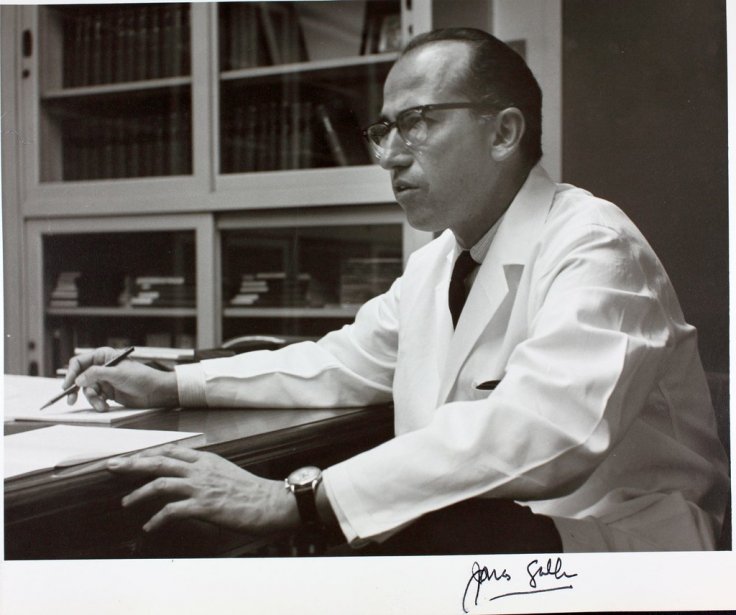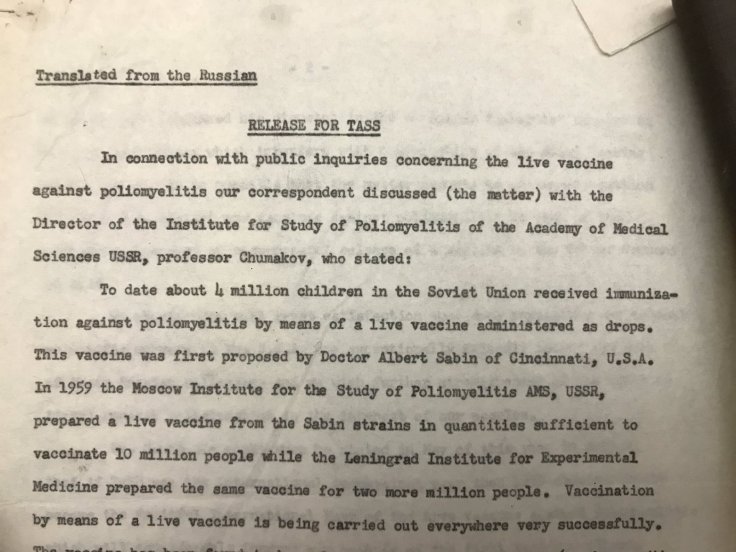As the world is gripped with the Coronavirus pandemic that has killed over 494,600 people and infected more than 9,778,600 individuals already, scientists are still looking for an effective vaccine to help millions. Meanwhile, some researchers said that there could be a stopgap way to reduce the spread of SARS-CoV-2 or Covid-19.
The experts are examining a secondary effect of the "live virus" polio vaccine, as a way to prevent the Coronavirus transmission. The polio vaccine may not be effective for nearly the same length as a vaccine but when someone is injected with the "live virus" polio vaccine, their immunity has been extended to many viruses for about a month.
Decades-Old Strategy
The first successful polio vaccine, developed by an American virologist, Dr. Jonas Salk used "inactivated" virus, particles of dead virus. When it was widely introduced in 1955, Dr. Albert Sabin, American-Polish researcher, was testing a vaccine using live but attenuated poliovirus. But in the U.S., where the Salk vaccine is already in use, healthcare experts were reluctant to take the perceived risk of conducting live-virus trials.

Sabin gave his three strains of attenuated virus to a married couple of virologists in Moscow, when it was erstwhile Soviet Union -- Dr. Mikhail Chumakov, founder of a polio research institute that now bears his name, and his wife Dr. Marina Voroshilova.
A live poliovirus vaccine test went underground, with healthcare experts in the Soviet Union, administering the vaccine to their own children during the trial process. Voroshilov administrated the vaccine to her own children and several nieces and nephews.in 1959 as countless lives were at stake.
As reported by the New York Times the study in the Soviet Union extended to 320,000 people, from 1968 to 1975, and Voroshilova found that people injected with the live vaccine were less likely to die of the flu. Her theory said that the live vaccine stimulated the immune system into a more robust overall response for a month.
She found that the live polio vaccine had an unexpected benefit that may become relevant to the current pandemic. Today, the same vaccine has gained renewed attention from several researchers as a possible weapon against the new Coronavirus.

Billions of people had been given the polio vaccine, almost eradicating the disease. Only in extremely rare cases, the weakened virus used in the vaccine mutated into a more dangerous form, causing polio and infecting other people. The risk of paralysis is estimated at one in over two million vaccinations.
Because of these reasons, public health organizations say that once a region eliminates naturally occurring polio, it must stop the routine use of the oral vaccine, as it happened in the U.S. 20 years ago.
The National Institute of Allergy and Infectious Diseases (NIAID) delayed a study designed by Dr Robert Gallo's Institute of Human Virology at the University of Maryland School of Medicine, the Cleveland Clinic, the University of Buffalo and Roswell Park Comprehensive Cancer Center to test the effectiveness of live polio vaccine against the SARS-CoV-2 using health care workers as subjects.
NIAID found some safety concerns, including the chance of live poliovirus making its way into water supplies and infecting others, according to the healthcare experts familiar with the study.
But apart from the U.S., other countries are moving ahead with the trials of the polio vaccine. The trials have already begun in Russia and are planned in Iran and West Africa's Guinea-Bissau. A specific vaccine for the COVID-19 would be the one that trains the immune system to target that virus specifically. Currently, over 125 vaccine candidates are under development around the world.









